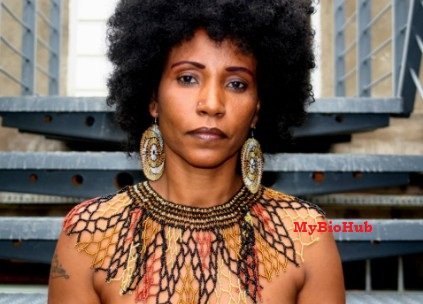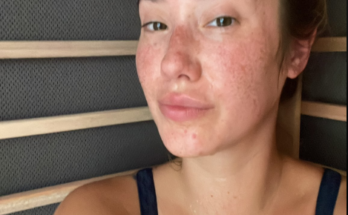Eritrean singer and music icon, Dehab Faytinga born Dahab Faid Tinga on June 10, 1964 . She hails from the Kunama people, a Nilotic community inhabiting Eritrea. Her mother was from the Tigrinya people, while her father was a revered freedom fighter among the Kunama people
At the age of fourteen, Faytinga joined the liberation struggle and became a combatant during the Eritrean War of Independence until the liberation in 1991. After being given military and political training at Bilekat, she was assigned to the public administration department. In 1987 she started to work with the Department of National Guidance to set up the Kunama radio programme. She then joined the cultural troupe as a Kunama language singer. In the late 80’s, Faytinga was reassigned to the public administration department in Kassala, Sudan and later Tokombia, where she was elected as member of the assembly of the National Union of Eritrean Women’s of Tokombia district.
As a member of The National Folkloric Troupe of Eritrea called the Sibrit Cultural Troupe, Dehab toured the US and Europe in 1990 . After releasing her first album “Sala Da Goda” on tape, she toured for the first time as a solo artist in 1995. She won the 2nd prize and emerged as the first East African women singer at the 2000 Ma’ Africa in Benoni, South Africa. In 1999, she recorded her first album “Numey” which is her first international release on the Paris-based Cobalt label.
Dehab composes her own songs and also interprets work from well-known poets and composers from Eritrea. When singing, she plays the krar, a small lyre.
In 2003, she released her second album “Eritrea”. Besides the krar and wata, she also brought guitar, flute, and percussion sounds.
READ: Ella A. Thomas Biography
Dehab has been performing around the world representing Eritrea as a ‘cultural ambassador’ for her country. She participated in particular to Expo 2005 in Aichi, Japan and to Expo 2010 in Shanghai, China. She equally attended the Earth Summit 2002 held in Johannesburg, South Africa. In addition, she has been collaborated with other artists such as the group Ouï-Dire in an attempt to mix her voice, her music and culture with that of other continents.
She is one of the first artists from Eritrea engaged in support of people living with HIV and AIDS. She has participated in numerous World AIDS Day events including as guest-star singer on 1 December 2003 during the event held at the Hotel Intercontinental, and in June 2005, together with Kenyan singer Achieng Abura in an exceptional gala diner concert for the benefit of women and children affected by HIV and AIDS. She also performed on the occasion of the opening of the Namibia gender-based violence Art Exhibition on 10 December 2013 at UNAIDS Headquarters in Geneva




